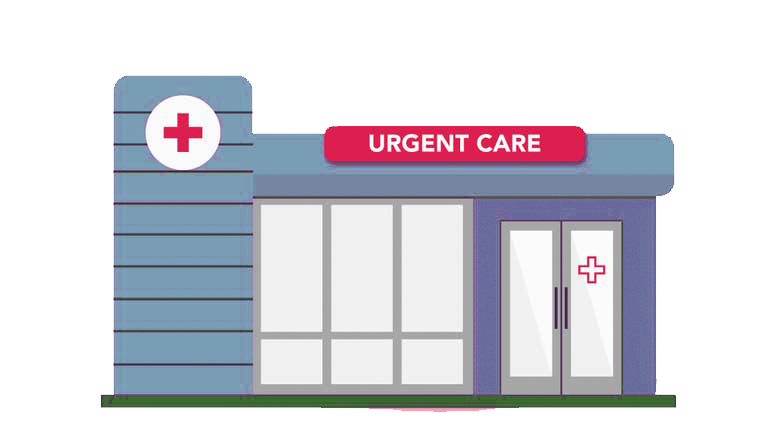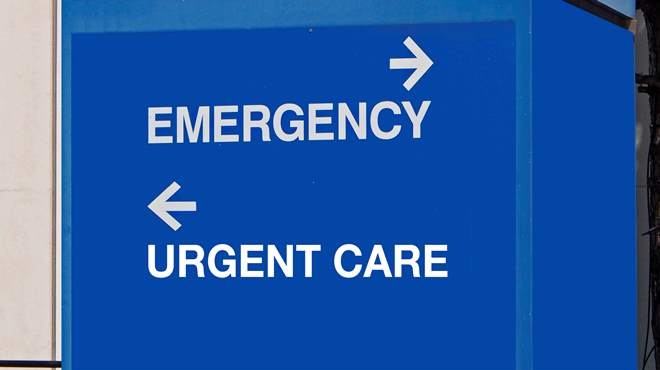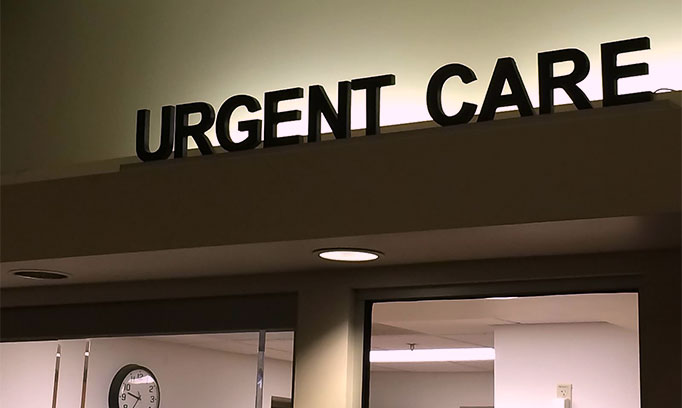What to Anticipate During Your First Visit to Urgent Care
What to Anticipate During Your First Visit to Urgent Care
Blog Article
Recognizing the Importance of Urgent Care Solutions for Non-Life-Threatening Medical Issues
The significance of immediate care services for non-life-threatening medical issues can not be overemphasized, specifically in today's health care landscape. These facilities offer an important alternative for clients looking for timely focus for problems that require prompt care yet do not necessitate a check out to the emergency situation space. By understanding the benefits of urgent treatment, such as decreased wait times and expense effectiveness, one can much better value their function in person health monitoring. Yet, the nuances of just how to navigate these solutions effectively continue to be to be explored, elevating questions about their ideal utilization.
What Is Urgent Care?
Immediate treatment describes a group of clinical solutions created to address non-life-threatening conditions that call for instant focus however do not necessitate a visit to the emergency clinic. These centers provide a bridge between main treatment and emergency situation services, using accessible health care choices for individuals experiencing severe medical issues, such as minor fractures, strains, infections, or serious illnesses that emerge all of a sudden.

The extent of services provided by urgent treatment facilities can differ but typically includes treatment for typical ailments like colds, influenza, and allergic reactions, as well as small injuries (urgent care). In addition, numerous immediate treatment facilities offer preventative services, such as inoculations and physical examinations, to resolve wider wellness requirements. By providing a practical alternative for immediate clinical concerns, these facilities play a vital duty in the healthcare continuum, making certain that clients get appropriate care when they require it most
Advantages of Urgent Treatment Services
Numerous individuals find that utilizing urgent care solutions gives substantial advantages over conventional emergency situation space sees or awaiting a health care visit. One primary benefit is the lowered wait times. Urgent treatment facilities commonly have shorter delay durations, permitting clients to receive timely medical attention when they need it most. This expedited care is specifically practical for non-life-threatening problems that require punctual intervention.
An additional benefit is the prolonged hours of procedure. Several urgent treatment centers are open evenings and weekend breaks, accommodating people that may not be able to see their medical care doctor throughout routine office hours. This flexibility makes it much easier for individuals to accessibility care at their comfort.
In addition, urgent care services usually provide a cost-effective choice to emergency spaces. People frequently deal with reduced co-pays and general expenses when seeking treatment for minor disorders at immediate treatment facilities instead of healthcare facility emergency departments.
Last but not least, immediate treatment facilities are geared up to handle a selection of non-life-threatening concerns, offering a broad series of solutions under one roof. This comprehensive approach not only simplifies the therapy process but also boosts individual complete satisfaction by delivering timely and effective treatment.
Typical Problems Dealt With
What kinds of non-life-threatening problems can people anticipate to receive therapy for at immediate treatment? Immediate treatment centers are geared up to take care of a large variety of usual medical concerns that call for prompt attention however do not position an instant risk to life. These centers frequently treat conditions such as small fractures, strains, and strains, giving vital look after injuries that happen throughout daily tasks or sporting activities.
In addition, patients often look for treatment for respiratory system infections, including colds, influenza, and respiratory disease, visit site where prompt treatment can minimize signs and protect against complications. Skin problem such as breakouts, insect bites, and small burns are additionally typically addressed, as prompt care can alleviate pain and decrease the danger of infection.

Contrasting Urgent Treatment and Emergency Situation Spaces

One substantial difference waits times; immediate treatment facilities generally have much shorter delay times contrasted to emergency situation areas, which can be clogged with even more vital instances. This efficiency enables individuals to receive prompt treatment for their disorders.
From a monetary viewpoint, immediate treatment gos to tend to be cheaper than emergency clinic sees. Insurance policy copays and out-of-pocket expenses are frequently reduced at immediate care facilities, making them a much more affordable choice for non-emergency scenarios.
Exactly How to Pick an Urgent Care Center
Selecting the right urgent treatment facility can considerably boost the high quality of treatment gotten throughout a non-life-threatening clinical problem. When choosing an urgent care facility, several vital aspects ought to be thought about.
First, assess the center's certification and licensing. Seek facilities that are accredited by recognized companies, as this suggests adherence to quality standards. Next off, review the range of services supplied. Some urgent care facilities focus on specific locations, while others provide extensive take care of different medical problems.
Additionally, consider the location and hours our website of operation. A conveniently located center with extended hours can be important for prompt care. It's additionally advisable to inspect the center's delay times and person reviews, which can offer insights right into the general patient experience.
Verdict
In conclusion, urgent care services play a crucial duty in resolving non-life-threatening clinical problems successfully. Eventually, comprehending the relevance of immediate treatment centers adds to boosted healthcare management and individual complete satisfaction.
 By providing a convenient option for urgent medical concerns, these centers play an important duty in the healthcare continuum, making sure that clients get suitable treatment when they need it most.
By providing a convenient option for urgent medical concerns, these centers play an important duty in the healthcare continuum, making sure that clients get suitable treatment when they need it most.Lots of individuals find that utilizing immediate care services gives significant benefits over traditional emergency situation room visits or waiting for a key care consultation. Numerous urgent treatment facilities are open evenings and weekends, suiting individuals that may not be able to see their key care physician during regular office hours. Immediate care facilities are created to address non-life-threatening conditions, such as minor fractures, imp source infections, and illnesses, using a practical choice to emergency rooms for those in requirement of immediate treatment. Some immediate care facilities specialize in specific areas, while others give comprehensive treatment for numerous medical problems.
Report this page